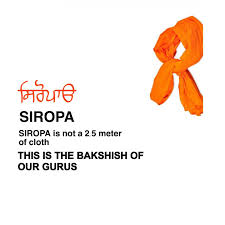BHAINI BAGHA, an old village 10 km north of the district town of Mansa (29° 59`N, 75° 23`E) in the Punjab, has a historical shrine, Gurdwara Rakabsar Patshahi Nauvlri. It is said that as Guru Tegh Bahadur was proceeding from Khiala towards Dikkh, a strap of the saddle stirrup, rakabin Punjabi, broke. He stopped to get the stirrup mended by the village cobbler. A memorial in the shape of a platform was raised to mark the spot where the Guru had alighted and sat. Later, a room was built by the side of the platform and the Guru Granth Sahib installed in it.
BULAKI DAS was the masand or head of the Sikh sangat, at Dhaka, now capital of Bangladesh, during the third quarter of the seventeenth century. Dhaka had been visited by Guru Nanak at the beginning of the sixteenth century when a sangat had emerged in the town. During the time of Guru Hargobind, a Sikh, Bhai Mohan, had kept the Guru`s message alive there. Bhai Nattha, third in succession to Almast, the Udasi saint, who had been sent by Guru Hargobind to preach in the eastern parts, had been deputed to supervise the sangats or Sikh fellowships or communities in Bengal.
BURHANPUR (21°18`N, 76°14`E), a medieval walled town on the banks of the River Tapti, is in East Nimar (Khandwa) district of Madhya Pradesh. It is a railway station, on the main DelhiItarsiBombay section of the Central Railway. There are two historical Sikh shrines in the town. GURDWARA SANGAT RAJGHAT PATSHAHI PAHILI, situated on the bank of the Tapti, perpetuates the memory of the sangat established in the wake of Guru Nanak`s visit in the early sixteenth century.
BAOLI SAHIB GURUDWARA,SRI GURU AMARDAS,LAHORE: This place is situated close to the birth place of Guru Ram Das in Chuni Mandi, opposite Multani Muhalla. When Guru Amar Das visited Lahore, he sanctified this place with his holy presence. The fifth Guru, Guru Arjan Dev Ji also stayed at Baoli, Dabbi Bazar when ever he was in Lahore. The sangat got a (baoli) built at this place. A rostrum (thara) still stands as a remenant but the baoli has been desecrated after the partition.




